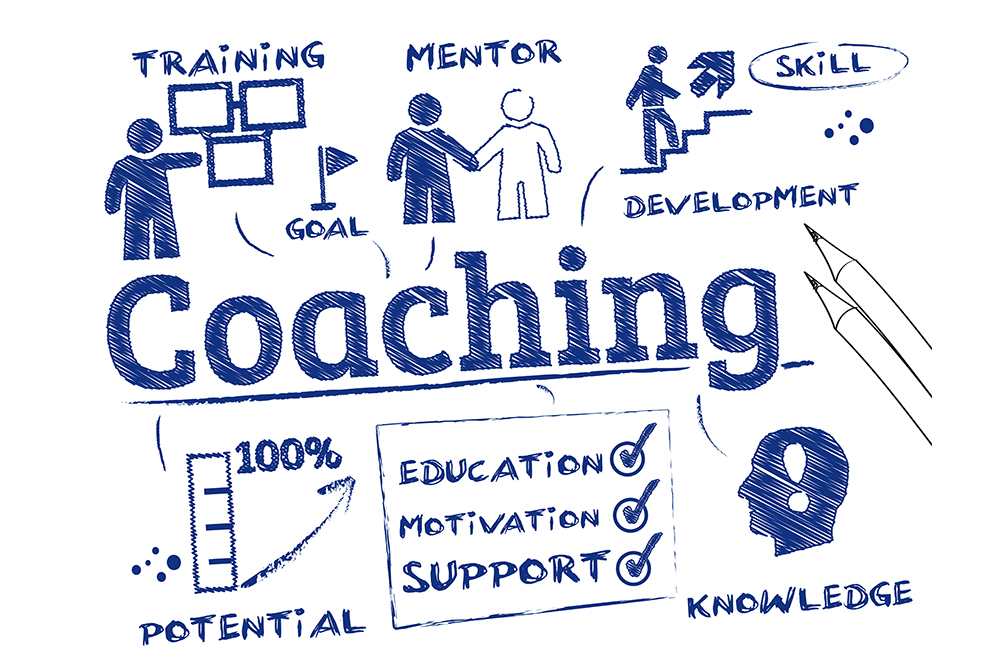In today’s rapidly evolving business landscape, effective leadership is crucial for organizational success. Recognizing the importance of nurturing leadership skills, many forward-thinking companies are turning to leadership coaching programs to develop and refine the capabilities of their key personnel.
In this blog post, we’ll explore the concept of leadership coaching, the components of a successful coaching program, and the tangible benefits it brings to both individuals and organizations.
Contents
What Does “Leadership Coaching’ Mean?

Leadership coaching is a specialized form of professional coaching focused on developing the leadership skills and abilities of individuals in leadership positions within an organization. It involves a collaborative and structured process in which a trained coach works closely with a leader to enhance their performance, effectiveness, and overall leadership capabilities.
The primary goal of leadership coaching is to help leaders identify and overcome challenges, leverage their strengths, and reach their full potential. Unlike traditional mentoring or management consulting, leadership coaching is a dynamic, personalized approach that emphasizes self-discovery, reflection, and action.
Key aspects of leadership coaching include:
- Self-Discovery: Leadership coaching often begins with assessments and reflective exercises to help leaders gain a deeper understanding of their values, strengths, and areas for development. This self-awareness is crucial for effective leadership.
- Goal Setting: Coaches work with leaders to set specific, measurable, and achievable goals. These goals are aligned with both the individual leader’s aspirations and the broader objectives of the organization.
- Feedback and Reflection: Leaders receive constructive feedback from their coach, as well as opportunities for self-reflection. This process helps leaders identify patterns of behavior, explore alternative approaches, and make informed decisions.
Role of Leadership Coaching
The role of leadership coaching is multifaceted, playing a crucial part in individual professional development, team dynamics, and overall organizational success. Here are some key roles that leadership coaching plays:
Individual Leadership Development
- Skill Enhancement: Leadership coaching focuses on improving specific leadership skills, such as communication, decision-making, conflict resolution, and strategic thinking.
- Self-Awareness: Coaches help leaders gain a deeper understanding of their strengths, weaknesses, values, and leadership styles, fostering self-awareness.
- Goal Setting: Coaches work with leaders to establish and achieve realistic and meaningful goals, aligning personal and professional aspirations.
Performance Improvement
- Addressing Challenges: Leadership coaches assist leaders in identifying and addressing challenges or areas of concern in their performance.
- Behavioral Change: Coaches provide constructive feedback and support leaders in making positive behavioral changes to enhance their effectiveness.
Team Dynamics and Collaboration
- Communication Skills: Leadership coaching often includes improving communication skills, which is essential for fostering positive team dynamics and collaboration.
- Conflict Resolution: Coaches help leaders develop strategies for resolving conflicts within their teams, promoting a healthy and productive work environment.
Strategic Leadership
- Strategic Thinking: Leadership coaches guide leaders in developing strategic thinking skills, enabling them to make informed decisions and navigate complex business landscapes.
- Vision and Mission Alignment: Coaches assist leaders in aligning personal and team objectives with the overall vision and mission of the organization.
Succession Planning and Talent Development
- Identifying and Developing Talent: Coaches work with leaders to identify and nurture emerging leaders within the organization, contributing to effective succession planning.
- Creating a Learning Culture: Leadership coaching fosters a culture of continuous learning and development, influencing not only the individual being coached but also those within their sphere of influence.
Key Elements of Leader Coaching

Effective leadership coaching encompasses several key elements that contribute to its success in fostering individual and organizational growth. These elements create a framework for the coaching process, ensuring a structured and purposeful approach to developing leadership skills. Here are some key elements of leader coaching:
Establishing Trust:
- Confidentiality: Leaders need to feel that coaching sessions are a safe space where they can openly discuss challenges and opportunities without fear of judgment or repercussions.
- Open Communication: A trusting relationship is built on open and honest communication between the coach and the leader.
Goal Setting and Clarity:
- SMART Goals: Clearly defined, Specific, Measurable, Achievable, Relevant, and Time-bound (SMART) goals provide a roadmap for the coaching process.
- Alignment with Organizational Objectives: Goals should align with both the individual leader’s aspirations and the broader objectives of the organization.
Assessment and Feedback:
- 360-Degree Assessments: Utilizing feedback from peers, subordinates, and superiors provides a comprehensive view of a leader’s strengths and areas for improvement.
- Constructive Feedback: Coaches provide timely and constructive feedback, focusing on both positive aspects and areas requiring attention.
Self-Awareness and Reflection:
- Assessment Tools: Coaches leverage self-assessment tools and exercises to help leaders gain insights into their personality, values, and leadership style.
- Reflective Practices: Encouraging leaders to reflect on their experiences, actions, and decisions enhances self-awareness and promotes continuous learning.
Active Listening and Empathy:
- Listening Skills: Coaches employ active listening techniques to fully understand the leader’s challenges, perspectives, and goals.
- Empathy: Demonstrating empathy helps coaches connect with leaders on a personal level and fosters a supportive coaching relationship.
Skill Development:
- Tailored Strategies: Coaching sessions include customized strategies for skill development, addressing specific leadership competencies.
- Application in Real-World Scenarios: Practical exercises and real-world application of skills enhance the transfer of learning from coaching sessions to the workplace.
Cost of Leadership Coaching
The cost of leadership coaching can vary significantly based on several factors, including the coach’s experience, expertise, geographical location, the format of coaching, and the duration of the coaching program. Here are some factors to consider when evaluating the cost of leadership coaching:
Coach’s Experience and Expertise:
- Coaches with extensive experience, advanced certifications, and a proven track record of success often command higher fees.
- Specialized expertise in leadership development, industry-specific knowledge, or coaching executives at the C-suite level may influence the cost.
Geographical Location:
- Coaching fees can vary based on the cost of living and economic conditions in different regions. Coaches in metropolitan areas or regions with a higher cost of living may charge more.
Type of Coaching Engagement:
- Individual Coaching: One-on-one coaching sessions tend to be more expensive than group coaching or workshops due to the personalized attention provided to each leader.
- Group Coaching: Organizations may opt for group coaching sessions, which can be a more cost-effective way to develop leadership skills for multiple individuals simultaneously.
Duration and Frequency:
- Longer coaching engagements or more frequent sessions typically result in higher costs. The duration of coaching programs can range from a few months to a year or longer.
- Some coaches offer different coaching packages with varying levels of support, which can affect the overall cost.
Customization and Complexity:
- The level of customization required for a coaching program influences the cost. Tailored programs addressing specific organizational challenges or individual development needs may be more expensive.
- Coaching programs that involve in-depth assessments, feedback processes, and specialized methodologies may have higher associated costs.
In-Person vs. Virtual Coaching:
- In-person coaching sessions may incur additional costs related to travel, accommodation, and time.
- Virtual coaching, conducted via video conferencing or phone calls, is often a more cost-effective option, especially for leaders in different locations.
The Benefits of Leadership Coaching

Leadership coaching offers a myriad of benefits that extend beyond individual leaders to positively impact teams, organizational culture, and overall business performance. Here are some key benefits of leadership coaching:
- Enhanced Self-Awareness: Leadership coaching facilitates deep introspection, helping leaders gain a profound understanding of their strengths, weaknesses, values, and leadership styles. This heightened self-awareness forms the foundation for effective leadership.
- Improved Leadership Skills: Coaching focuses on developing specific leadership competencies such as communication, decision-making, conflict resolution, and strategic thinking. This targeted skill development contributes to leaders’ overall effectiveness in their roles.
- Increased Emotional Intelligence: Leaders often enhance their emotional intelligence through coaching, improving their ability to understand and manage emotions, navigate interpersonal relationships, and make empathetic decisions.
- Strategic Thinking and Decision-Making: Coaching guides leaders in honing their strategic thinking skills, enabling them to make informed decisions aligned with organizational goals and navigate complex business landscapes with confidence.
- Positive Team Dynamics: Leaders who undergo coaching are better equipped to foster positive team dynamics. Improved communication, stronger interpersonal relationships, and effective conflict resolution contribute to a healthier and more collaborative work environment.
- Heightened Adaptability to Change: Coaching instills a proactive mindset and resilience in leaders, making them more adaptable to change. This adaptability is crucial in navigating the evolving challenges and uncertainties of the business world.
- Increased Employee Engagement: Effective leadership positively influences employee engagement. Leaders who have undergone coaching are often more attuned to the needs and aspirations of their team members, fostering a sense of purpose and commitment.
Conclusion
In conclusion, leadership coaching stands as a dynamic and transformative investment in the development of effective leaders and the overall success of organizations. Through a nuanced interplay of trust-building, goal-setting, skill development, and continuous improvement, leadership coaching empowers individuals to navigate the complexities of their roles with heightened self-awareness and strategic acumen.
While the cost of leadership coaching may vary based on factors such as expertise, format, and duration, its potential to unlock leadership potential and drive meaningful organizational outcomes underscores its value as a strategic driver of sustainable success in today’s dynamic business landscape.
If you looking for leadership coaching MantraCoach is here to help. Book your free trial leadership coaching for employees session now.


